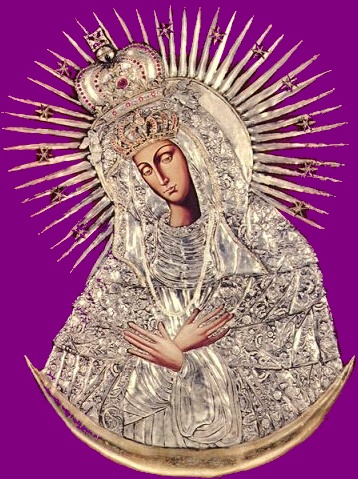
Madonna of Vilnius, Ostra Brama formerly Poland
|
|
|
|
|
 Adam Mickiewicz 1798-1855
|
|
In this context, one may mention briefly Mickiewicz's American connection. During her stay in Paris, Mickiewicz befriended Margaret Fuller, the early American feminist and follower of Emerson. (There were even allegations that they had an affair.) The prophetic vision of future Poland he conjured before her eyes fascinated Fuller, As Mieczyslaw Jastrun put it in his biography of Mickiewicz [Mickiewicz, Warsaw, 1949, p.282], the poet presented the American woman with a vision of a "country where there will be no injustice and terror, where the sun will never set." And Jastrun continues, "This is what Moses must have looked like when the Lord had shown him the Promised Land. It seemed that the cane the poet took into his hand [ . . . ]—the shabby cane of a pilgrim blossomed like a vine." Although not entirely accurate in his prophecies, Mickiewicz cannot be seen as a false prophet. Many of his predictions are fulfilled today. Not only is Poland an independent nation with a flourishing national culture, but Mickiewicz's vision of a culturally and ethnically diverse society has also materialized and taken hold on the Polish national consciousness. People from the so called "kresy" (borderlands), or the Eastern territories of the former Polish Republic—Lithuania, the Ukraine, Byelorussia, as well as Jews and other minorities, are more and more readily recognized as legitimate historical contributors and participants in Polish culture. Adam Mickiewicz was not only a prophet and an ardent and committed Polish patriot who became the voice and the inspiration of the Polish people. He was also one of the leaders in the struggle for the rights of oppressed nations and anticipated in his mystical visions the idea of a free and united Europe. Mickiewicz's cosmopolitan views and universalist leanings are still remembered as a disturbing force in Russia and France. But Poles remember him primarily for the combination of hope, vision and prophetic intensity he consistently provided in his passionate writings rendered in beautiful Polish. Already in evidence in his preceding works (primarily in part III of FOREFATHERS' EVE), Mickiewicz gave full expression to his messianic themes in a work titled KSIEGI NARODU I PIELGRZYMSTWA POLSKIEGO / THE BOOKS OF THE POLISH NATION AND OF THE POLISH PILGRIMAGE (1832). Published in the form of a missal, the work was nearly Biblical in style and was also designed to comfort and offer guidelines to the many emigrants who arrived in France following the downfall of the November Insurrection in Poland. The publication was distributed free of charge and in it the poet expressed his conviction about the special role that Poland had to play as a leader in the struggle of peoples against the tyranny of governments, about Poland's religious and political responsibilities to humankind. A papal edict condemned the book for its use of religious arguments as justification for the pursuit of a radical social program (which included the enfranchisement of peasants and the introduction of universal civil rights that would encompass women and Jews). Adam Mickiewicz's work has had a permanent
impact on Polish culture, influencing collective consciousness,
literature, and art. For over two centuries it remained a permanent
element of any literary education and served as a basis for shaping
feelings of patriotism. His poetry has strongly impacted the Polish
language and imagination, even making its way into everyday speech.
Literature of the 19th and 20th centuries is full of metaphors
and quotations from, as well as references to, the works of Mickiewicz.
He has inspired writers like Juliusz Slowacki, Boleslaw Prus,
Stanislaw Wyspianski, and Stefan Zeromski. Contemporary poets
like Czeslaw Milosz |
Ksiegi narodu i pielgrzymstwa polskiego
| Sonnets from the Crimea | Pan Tadeusz |
| Translation
for 140 languages by ALS |
|
|
|
|